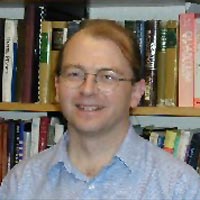Workshop on
Quantum Mechanics: Axiomatics of Measurements and connections
with Computing and Information Retrieval
A theory of quantum gravity based on quantum computation
>
PRESENTATION:
Seth Lloyd is Professor of Mechanical Engineering at MIT and a principal
investigator at the Research Laboratory of Electronics. He is also adjunct
assistant professor at the Santa Fe Institute. He works on problems having
to do with information and complex systems from the very small-- how do
atoms process information, how can you make them compute, to the very
large-- how does society process information? And how can we understand
society in terms of its ability to process information? His seminal work
in the fields of quantum computation and quantum communications-- including
proposing the first technologically feasible design for a quantum computer,
demonstrating the viability of quantum analog computation, proving quantum
analogs of Shannon's noisy channel theorem, and designing novel methods
for quantum error correction and noise reduction-- has gained him a reputation
as an innovator and leader in the field of quantum computing. Lloyd has
been featured widely in the mainstream media including the front page
of The New York Times, The LA Times, The Washington Post, The Economist,
Wired, The Dallas Morning News, and The Times (London), among others.
His name also frequently appears (both as writer and subject) in the Nature,
New Scientist, Science and Scientific American.

This talk proposes a theory of quantum gravity based on quantum information processing. In this theory, distances and time intervals are derived from pairwise interactions between quantum degrees of freedom: the geometry of spacetime is a construct, derived from the underlying quantum information processing. The theory provides explicit predictions for the back-reaction of the metric to computational `matter,' black-hole evaporation, holography, and quantum cosmology.